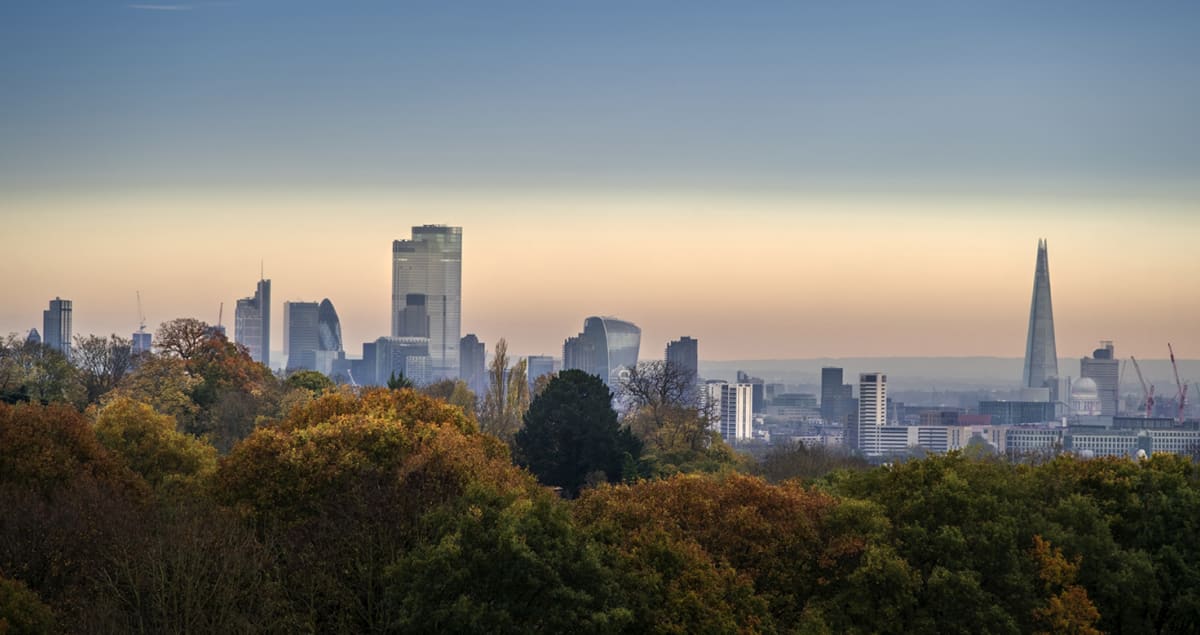Why investing in coworking centres is smart in a post-pandemic world.
When Covid-19 shut down offices throughout the world, people had to adapt to a new way of working – one that does not involve long, expensive daily commutes, that offers a more satisfying work/life balance, and that is also better for the environment. And, for many people, it felt surprisingly good.
Workers who’ve glimpsed a different way of life during the pandemic are now demanding greater flexibility over how and where they work in the future. Companies are answering that call by embracing the ‘hub-and-spoke’ model, where businesses downsize central HQs and open up regional bases nearer to employees’ homes.
In the UK, demand for IWG workspaces in some M25 commuter hotspots surged during the pandemic. For example, in Uxbridge it has grown by 175%, in High Wycombe it’s risen by 52% and Hayes saw an increase of 24%. By contrast, demand for space in some parts of London dropped by 10 - 20%.
The operator of brands including Regus and Spaces has also seen a surge in demand for new ‘franchise cluster agreements’ from existing and prospective partners. These deals are available globally, and allow for franchise partners to open multiple flexspace centres within particular areas.
Franchise partner James Wright of WG1 Offices Ltd plans to open five new flexspaces over the next four years in residential areas of London, including centres in King’s Cross, Hoxton and Bethnal Green. He says the mix of residential and commercial real estate makes these areas of the city particularly suitable for ‘spoke’ office developments, which employees are likely to use as an alternative to home.
Wright explains that there’s a real need for coworking sites in these densely populated areas, where space is at a premium and people are more likely to live in flats than houses. “Working from home [in these locations] isn’t necessarily the easiest,” he comments. “People living [here] will probably go back to working in an office quicker than they might do if they were based further afield.”
Nevertheless, Wright says, “the great thing about these areas is that they’re very well catered for in terms of everything that you want from an office location. They have a good transport network, suitable nearby services and existing office stock.”
Franchise partnerships such as that between IWG and WG1 Offices could help pave the way for the arrival of the ‘15-Minute City’. Developed by Professor Carlos Moreno at the Sorbonne in Paris, the concept is now influencing governments across the globe, inspiring them to improve people’s quality of life by creating cities where everything they need can be reached within a quarter of an hour by foot or bike from where they live. IWG CEO Mark Dixon believes the realisation of the 15-Minute City will be “one of the most dramatic and long-lasting legacies of the pandemic,” transforming sleepy towns into “vibrant centres for work and community life”.
Flexible workspaces are already being seen as key for turning this ideal into a reality. According to the UK government’s High Streets Task Force, which is looking into the future of British towns, flexible workspaces will be a crucial part of the multifunctional town centre of the future, post-pandemic. Meanwhile, the Welsh government says it wants to give workers more flexibility to work remotely. It’s exploring the development of a network of community-based working spaces within walking or cycling distance of people’s homes – spaces that could be used by public, private and third-sector employees.
Some big corporates have already begun to invest heavily in flexible workspaces. Tech giant NTT and Standard Chartered bank both recently signed ground-breaking deals to give thousands of employees access to IWG’s global network of centres. NTT is even developing an app that lets workers know which nearby offices are currently being used by their colleagues.
The world of the 15-Minute City seems closer than ever, and Dixon doesn’t think a return to pre-Covid ways is likely now. “Why should companies go to the expense of providing prestige office accommodation in city centres, when their people have been proven in recent months to be just as effective and productive elsewhere – not just at home, but also in offices ‘around the corner’?” he says.
“People want to work close to where they live. It’s going to stick. The most valuable real estate in the world may well be in Gerrards Cross [a Buckinghamshire town just beyond the M25], not central London.”
Looking for your next investment opportunity? Read some of our franchise partner testimonials or find out more about IWG’s franchising partnership.






